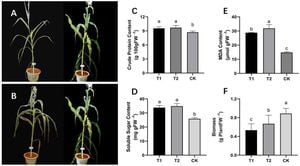France's health authorities announced the extension of the influenza vaccination campaign until February 28, 2025, amid the continued severe flu epidemic impacting citizens across various age groups. This decision stems from the high transmission rates of respiratory viruses and aims to reduce hospitalizations, particularly among vulnerable populations.
According to Santé publique France, the flu viruses are still highly active both on the mainland and overseas territories. By mid-January, the flu epidemic was at a high intensity level across all age groups, with individuals aged 65 and older accounting for 67% of hospitalizations related to flu or flu-like symptoms. "We have observed this year what can be called unusual co-circulation of three flu viruses," stated the Direction générale de la Santé (DGS). The viruses A(H1N1)pdm09 and A(H3N2), along with the B/Victoria virus, are all contributing to the severity and spread of influenza, affecting all demographics.
The health ministry has underscored the need for vaccination, emphasizing, "We invite at-risk individuals to get vaccinated without delay." This population includes seniors, pregnant women, and individuals with chronic health conditions, all of whom are encouraged to receive the flu shot to protect their health and prevent the virus's spread.
The joint vaccination campaign against influenza and COVID-19 was originally set to close at the end of January. Health officials justified the extension due to the continued severity of the flu season, highlighting the potential for co-infections with COVID-19, particularly among vulnerable groups. Hospitals and healthcare providers are on high alert, managing increasing patient loads amid the respiratory virus outbreak.
Healthcare professionals express relief over recent improvements, asserting, "We can no longer speak of a shortage of flu vaccines." Pierre-Olivier Variot, leading pharmacist at the Union des syndicats des pharmaciens d'officine (USPO), noted the timely resupply of vaccines for pharmacies, declaring, "Some wholesalers have been successfully replenished, leading to quicker availability of vaccines across pharmacies." This resolved the previous concerns over vaccine shortages.
The vaccination is entirely covered for at-risk individuals, which reinforces safety measures against respiratory illnesses. With vaccines readily available, healthcare providers can administer shots without any requirement for documentation, ensuring easier access to vaccination for all. For persons younger than 65 with chronic diseases as well as pregnant women, vaccinations are necessary precautions against serious health risks posed by the prevalent flu viruses.
Despite dwindling worries over vaccine shortages, officials continue to stress the importance of vaccinations, as health safety practices remain effective against influenza and other winter viruses. Regular hand hygiene and wearing masks are still encouraged, particularly among individuals susceptible to severe flu cases.
The overlapping flu and COVID-19 vaccines are not just precautionary but aim to bolster public health efforts to tackle both diseases. The vaccination drive's proactive measures are reflective of the French government's commitment to safeguarding public health amid challenging viral seasons.
While addressing their community, health authorities reiterate the significance of individual responsibility and collective actions to minimize the risks associated with flu spread. They urge individuals to heed health advisories as the flu continues to plague various demographics, reminding everyone of the importance of vaccination as both personal and community protection.
With healthcare systems under pressure and hospitals managing many patients, this extension of France's flu vaccination campaign aims to cultivate higher inoculation rates among the general population. The authorities hope this initiative will disseminate awareness about the severity of the flu virus and motivate individuals to get vaccinated as soon as possible, ensuring they are protected from both the flu and COVID-19 this concurrently challenging season.



